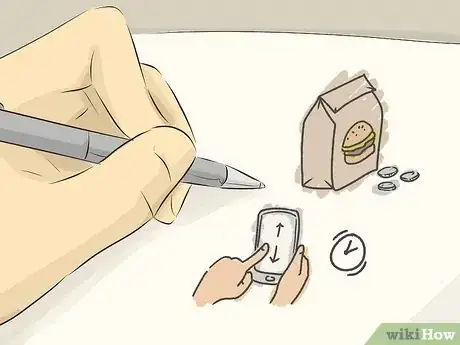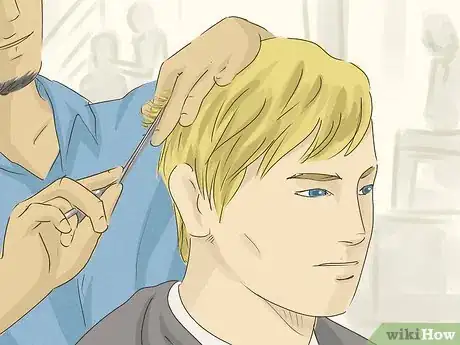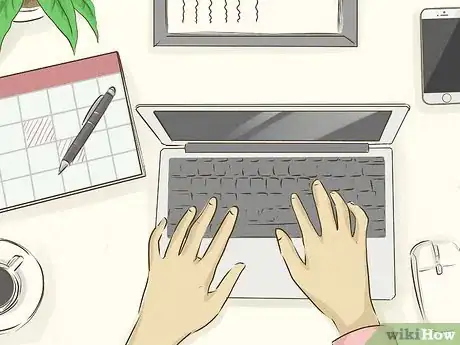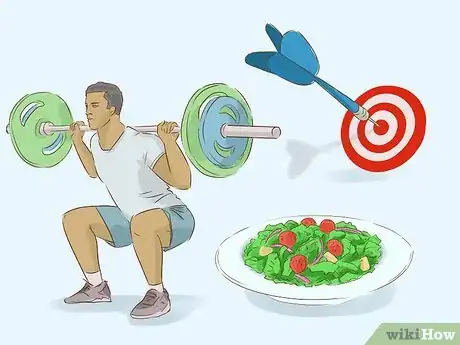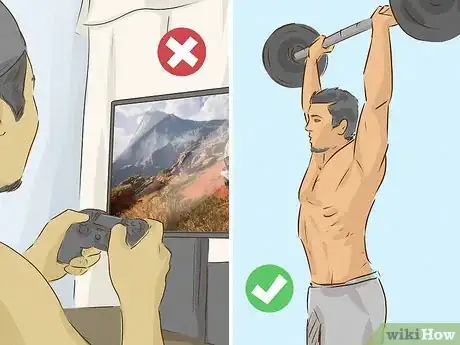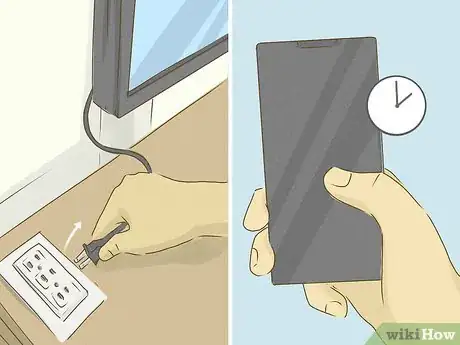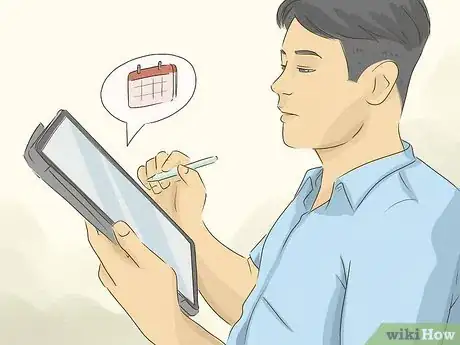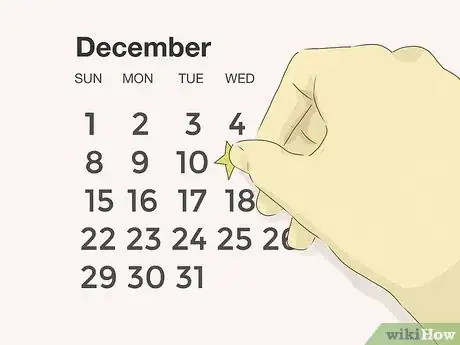This article was co-authored by Lucy Yeh and by wikiHow staff writer, Danielle Blinka, MA, MPA. Lucy Yeh is a Human Resources Director, Recruiter, and Certified Life Coach (CLC) with over 20 years of experience. With a training background with Coaching for Life and Mindfulness-Based Stress Reduction (MBSR) at InsightLA, Lucy has worked with professionals of all levels to improve the quality of their careers, personal/professional relationships, self marketing, and life balance.
There are 16 references cited in this article, which can be found at the bottom of the page.
wikiHow marks an article as reader-approved once it receives enough positive feedback. This article received 28 testimonials and 84% of readers who voted found it helpful, earning it our reader-approved status.
This article has been viewed 740,476 times.
Realizing that you aren’t living your best life can leave you feeling stuck and frustrated with yourself. While changing yourself completely could be challenging at times, it is still possible if you are willing to put in the effort.
Steps
Figuring Out What Your Best Life Looks Like
-
1Identify your triggers for behaviors you want to change. Changing a bad habit is really hard, but figuring out your triggers might help. When you feel tempted to engage in a bad habit, write down what was happening beforehand. This might be your trigger, so avoiding that situation in the future could help you make positive changes.[1]
- Let’s say you’re trying to stop eating junk food. When you feel tempted to munch on a bag of chips, you might consider what was happening when the craving hit. You might realize that when you feel stressed, you crave junk food. Managing your stress levels might help you avoid triggering your cravings.
-
2Make a list of the habits and behaviors that are holding you back. You’ll need to swap out your bad habits for good ones if you want to make a big change. Identify the habits that aren’t helping you live the life you want. Additionally, recognize the behaviors that are causing problems in your life. List out these habits and behaviors so you can work on changing them.[2]
- As an example, you might recognize that your habit of eating take out on weekends is preventing you from saving money to use for your hobbies and from eating healthy meals.
- Similarly, you might realize that scrolling on your phone is taking all of your free time.
Advertisement -
3Describe what your best life looks like. If you’re wanting to change yourself completely, it’s likely you feel that your life isn’t going the way you’d like. To help you be your best self, decide what your ideal life would look like. Include the job or path of study you want to pursue, how you want to spend your day, and how you want people to perceive you.[3]
- For instance, you might decide that you want to be a teacher so you can work with kids. In your free time, you might spend your day helping others, making things, and spending time with your family. You may want people to perceive you as a kind-hearted, hard-working person.
Making Big Changes
-
1Invest in yourself to help you recognize your value. You deserve to feel your best, so treat yourself to a new look. Switch up your hairstyle and put together a few new outfits to give yourself a fresh start. If you wear makeup, use a tutorial to try out a new look.[4]
- If you can afford it, go to a salon for a new haircut and purchase some new clothes.
- If you’re short on cash, go to a thrift store or shop a sale to add 1-3 new pieces to your wardrobe. As another option, invite your friends to have a clothing swap with you so you can get new-to-you clothes for free.
-
2Change your environment so your life feels fresh. A fresh environment can help you change your mindset and make you feel unstuck. Start by removing any clutter from your living and work space. Then, rearrange your furniture or other decorations to create a new look. If you can, add something new to remind you that you’re making a big change in your life.[5]
- Even a tiny change can make a big difference, so don’t worry if you can"t overhaul your entire space. For instance, getting a small potted plant and a motivational print may be enough to help you feel renewed.
- If you can, redecorate your space so you life feels totally new. Switch out your artwork, get new linens, and replace outdated or broken furniture.
- Set up your environment to fit your ideal life. For instance, you might make your desk the focal point in your room if you want to write or study more. Similarly, you might place your pots and pans within easy reach if you want to start cooking every day.
-
3Use positive self-talk to motivate yourself. Your attitude can make or break you, so cultivate a positive mindset. Pay attention to your thoughts so you can recognize negative thinking patterns. When you catch yourself thinking negatively, challenge that thought and replace it with something neutral or positive. Additionally, create positive affirmations for yourself that you can repeat throughout the day.[6]
- For instance, let’s say you catch yourself thinking, “I suck at everything.” You might challenge that thought by telling yourself, “That can’t be true because I’m good at singing, drawing, and baking.” Then, replace it with something like, “I’m good at a lot of things, but no one knows how to do everything.”
- You might use positive affirmations like, “I am enough,” “I can accomplish anything with hard work,” and “I’m becoming my best self” to motivate yourself.
-
4Try something new to push yourself out of your comfort zone. When you’re making a big change in your life, you need to break free of your comfort zone to help you grow. The best way to do this is to start trying new things. Make a list of things you’ve always wanted to try, then start checking things off.[7]
- Your list might include things like, “Go to the new Thai restaurant,” “Go skydiving,” “Take an art class,” “Apply for an internship,” “Volunteer,” “Talk to a stranger at the grocery store,” “Fix my hair a different way,” and “Take a new route to work.”
Becoming the Best You
-
1Set realistic, measurable goals to help you be your best self. Review your description of your idea life and identify 1-3 goals that can help you get there. Then, revise your goals so that they are small and easy to measure. Be specific so you can track your progress.[8]
- As an example, “Be more active” is not a great goal because it’s not measurable or specific. A better goal would be “Work out 30 minutes a day.”
-
2Incorporate new habits that will help you reach your goals. Make a list of positive habits that will help you work toward your goals. Then, decide how you can incorporate these habits into your life. Schedule your new habits into your day so you can slowly make progress on your goals.[9]
- For example, let’s say your goal is to reach a healthy body weight. Your new habits might be to workout every day and eat healthy meals. To help you keep up with these habits, you might schedule your workouts and time to prepare healthy dishes.
-
3Cut back on low-priority activities so you have time for what’s important. You have a limited amount of time every day, and adding your new goals to your schedule might feel overwhelming. To make time for your new goals, look for activities that aren’t helping you live your best life. Replace these low-priority activities with your new positive habits.[10]
- For instance, let’s say you normally spend your lunch hour playing a game on your phone. Instead, you might use this time to exercise.
-
4Surround yourself with growth-oriented people who motivate you. The people you have in your life make a big impact on your motivation and behavior. Spend more time with people who are working toward success and doing what makes them happy. This will help motivate you to keep pursuing your big change in life.[11]
- Don’t worry about excluding people from your life. If you’re spending more time with people who are growth-minded, you’ll naturally spend less time with people who might be a bad influence.
- Try attending social events for people who share your goals or interests. You’ll likely make good friends there.
-
5Track your progress toward your new goals and habits every day. Document how much work you’re putting toward your goal, and celebrate each minor accomplishment you make. Focus on making progress and not on your end point. This will help you stay motivated to keep going.[12]
- Every day, write down what you did that day to help you reach your goal.
- When you accomplish a small task, have a mini celebration and congratulate yourself for making progress.
Staying the Course
-
1Recruit an accountability partner as you make changes. It’s easier to stay motivated if you’re working with a partner. Ask someone who shares a similar goal or who you trust to be honest with you to be your accountability partner. Check in with your partner at least once a week so that you feel like you have to keep making progress.[13]
- Depending on what your goal is, you might also invite your accountability partner to do goal-oriented activities with you.
- If you’re working toward multiple goals, consider having more than 1 accountability partner. For instance, you might have a friend who works out with you, a roommate who helps you monitor how you’re using your free time, and a coworker who checks on your daily work progress.
-
2Reduce distractions that prevent you from focusing on what’s important. Things like TV and your phone can be a big distraction, but don’t let them hold you back. When a distraction is preventing you from sticking to your positive changes, remove it from your life or put restrictions on it. This will help you make progress toward your goals.[14]
- As an example, you might use an app to limit your use of social media on your phone and computer.
- Similarly, you might unplug your TV to make it harder to watch it.
-
3Reflect on your progress toward your goals once a week. Reflection helps you recognize what you’re doing right and what you’re doing wrong. This helps you make new changes to help you reach your ultimate goal. Set aside time each week to think about what you accomplished that week and what changes could help you do better over the upcoming week.[15]
- For instance, you might record how much time you spent working on your goals and what activities felt like a waste of time. Then, decide how you can spend your time more wisely in the future.
-
4Reward yourself for making positive changes. Give yourself a small treat to recognize your progress. This might be a sticker, your favorite food, or a small item you’ve been wanting. Continuously reward yourself so you stay motivated to stick with your big change.[16]
- To reward yourself for small changes, you might put a sticker on your calendar when you engage in a good habit or work on a goal.
- For bigger accomplishments, you might indulge in a small treat, like getting your favorite coffee or using a fancy bath bomb.
- When you accomplish a major milestone or goal, give yourself a bigger reward, like a new pair of shoes or a trip to the spa.
-
5Focus on the journey toward a better you rather than your end goal. It takes time to fully change yourself completely, but you’ll likely experience small changes along the way. These small changes are something to celebrate and help you start living a life that you love. Don’t worry about how long it takes you to fully live your best life. Instead, just enjoy your day-to-day journey.[17]
- Don’t push yourself so hard to reach your goals that you feel stressed and overwhelmed. Go slow and try to enjoy the ride.
-
6Incorporate rest days into your schedule so you don’t get burnt out. When you’re trying to change your life, you might feel like you have to use every moment wisely. This can leave you feeling like you can’t rest or slow down. However, your body and mind need rest if you’re going to be at your best. Schedule rest days into your life so you can recover and stay the course.[18]
- For example, you might plan a rest day each week where you relax or have fun.
- Alternatively, you might schedule a down day once a month where you stay home all day to relax.
Expert Q&A
Did you know you can get expert answers for this article?
Unlock expert answers by supporting wikiHow
-
QuestionWhat do I do when finding a life coach?
 Lucy YehLucy Yeh is a Human Resources Director, Recruiter, and Certified Life Coach (CLC) with over 20 years of experience. With a training background with Coaching for Life and Mindfulness-Based Stress Reduction (MBSR) at InsightLA, Lucy has worked with professionals of all levels to improve the quality of their careers, personal/professional relationships, self marketing, and life balance.
Lucy YehLucy Yeh is a Human Resources Director, Recruiter, and Certified Life Coach (CLC) with over 20 years of experience. With a training background with Coaching for Life and Mindfulness-Based Stress Reduction (MBSR) at InsightLA, Lucy has worked with professionals of all levels to improve the quality of their careers, personal/professional relationships, self marketing, and life balance.
Career & Life Coach Listen to your inner voice for guidance, as it's common for goals and values to shift as we move through life. If you are facing a significant change, the process can feel easier with help from an accountability partner and coach, and this person should listen to the goals that you are setting. Their job is to hold you accountable and help you navigate this time in your life!
Listen to your inner voice for guidance, as it's common for goals and values to shift as we move through life. If you are facing a significant change, the process can feel easier with help from an accountability partner and coach, and this person should listen to the goals that you are setting. Their job is to hold you accountable and help you navigate this time in your life! -
QuestionHow can I be more mature and responsible?
 Community AnswerFor responsibility, keep yourself on track. If you forget things easily, you could write down the things you need to do for that day, take a picture, and make it the wallpaper on your phone. Keep yourself on task and make sure you get everything done. For maturity, always think before you speak or act. Be a bigger person, walk away from conflict, be kind and polite to everyone.
Community AnswerFor responsibility, keep yourself on track. If you forget things easily, you could write down the things you need to do for that day, take a picture, and make it the wallpaper on your phone. Keep yourself on task and make sure you get everything done. For maturity, always think before you speak or act. Be a bigger person, walk away from conflict, be kind and polite to everyone. -
QuestionHow do I change everything about myself?
 WikiHowUser20171109012036Community AnswerAsk yourself what you want to change. Don't just say, "my appearance" or "my personality". What about your appearance? Is it your facial features? Maybe you have braces, glasses, and/or acne. Maybe you feel like you have a short temper. Write everything down or type it up in detail. Then, found solutions to your problems. Search online for ways to make your facial features larger, smaller, softer, and/or harder. There are braces that can go on the inside of your teeth. Research those. Research eye surgeries or considering getting contacts. Learn ways to lessen acne. Find anger management classes. If you really want to change yourself, research. Find ways to change what you want.
WikiHowUser20171109012036Community AnswerAsk yourself what you want to change. Don't just say, "my appearance" or "my personality". What about your appearance? Is it your facial features? Maybe you have braces, glasses, and/or acne. Maybe you feel like you have a short temper. Write everything down or type it up in detail. Then, found solutions to your problems. Search online for ways to make your facial features larger, smaller, softer, and/or harder. There are braces that can go on the inside of your teeth. Research those. Research eye surgeries or considering getting contacts. Learn ways to lessen acne. Find anger management classes. If you really want to change yourself, research. Find ways to change what you want.
References
- ↑ https://opentextbc.ca/socialpsychology/chapter/changing-attitudes-by-changing-behavior/
- ↑ https://learningcenter.unc.edu/tips-and-tools/changing-habits/
- ↑ https://ecampusontario.pressbooks.pub/studyprocaff/chapter/chapter-1/
- ↑ https://www.indeed.com/career-advice/career-development/invest-in-yourself
- ↑ https://www.psychologytoday.com/us/blog/in-practice/201802/6-benefits-uncluttered-space
- ↑ https://www.waldenu.edu/online-bachelors-programs/bs-in-psychology/resource/how-positive-self-talk-can-make-you-feel-better-and-be-more-productive
- ↑ https://www.psychologytoday.com/us/blog/in-flux/201512/5-benefits-stepping-outside-your-comfort-zone
- ↑ https://positivepsychology.com/goal-setting-psychology/
- ↑ https://learningcenter.unc.edu/tips-and-tools/changing-habits/
- ↑ https://hbr.org/2020/01/time-management-is-about-more-than-life-hacks
- ↑ https://www.apa.org/topics/behavioral-health/healthy-lifestyle-changes
- ↑ https://positivepsychology.com/goal-setting/
- ↑ https://www.apa.org/topics/behavioral-health/healthy-lifestyle-changes
- ↑ https://www.frontiersin.org/articles/10.3389/fpsyg.2021.711416/full
- ↑ https://hbr.org/2017/03/why-you-should-make-time-for-self-reflection-even-if-you-hate-doing-it
- ↑ https://psychcentral.com/blog/psychology-rewarding-yourself-with-treats#1
- ↑ https://www.gsb.stanford.edu/sites/gsb/files/publication-pdf/its_the_journey.pdf
- ↑ https://www.mhanational.org/rest-relaxation-and-exercise
About This Article
If you want to change yourself completely, start by making a list of things you want to change. Once you know what you’d like to improve about yourself, use the list to set specific goals to help you on your path. For example, if you want to be a nicer person, set a goal of doing 2 nice things for people every day. While you’re working towards your goals, try to find people with similar goals and interests, who will help you stay motivated. For instance, if you want to be healthier, spend more time with friends who eat well and exercise than people who stay in and eat fast food every day. For more tips, including how to find an accountability partner to keep you on track, read on!

